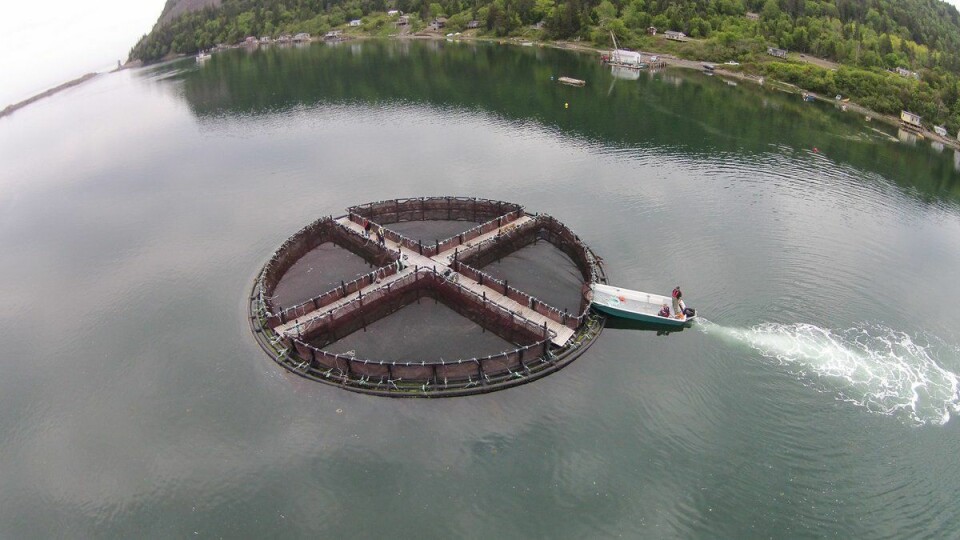
Lifeline could save Fundy salmon
Cooke Aquaculture is part of an extraordinary collaborative project which is working to restore endangered Atlantic salmon populations in the Bay of Fundy.
Atlantic salmon once thrived in the inner Bay of Fundy, but numbers dwindled from 40,000 a half-century ago to fewer than 250 by the year 2000.
They are now listed as endangered and protected under the Species at Risk Act. However, for the last few years, members of the Atlantic Canada Fish Farmers Association (ACFFA), including Cooke Aquaculture, have played a key role in the partnership with Parks Canada, Fisheries and Oceans Canada, Fort Folly First Nation, and the Huntsman Marine Science Centre, to try to help the bay's wild salmon population rebound.
Yesterday fisheries and aquaculture ministers from provincial, territorial and federal institutions unveiled a unique marine site, near Grand Manan, which holds wild smolts from multiple-year classes until they reach maturity, at which point they are released to return to the rivers of their forebears to spawn.
Upping the ante
Various rehabilitation, enhancement and recovery programs have been tried in the area during the past two decades to help salmon in their freshwater phase. These programs prevented extinction, but the few remaining salmon largely failed to return from the ocean to spawn in rivers. As a result it was decided to trial holding the salmon in a marine facility - with ample food supplies and fewer threats from predators - until they were ready to spawn.
“This is a great example of government working with industry, First Nations, scientists and conservationists and using their combined expertise to realistically affect the outcome for the Atlantic salmon population in our rivers,” said Rick Doucet, minister of agriculture, aquaculture and fisheries in press release. “This is good news for the wild salmon population, the environment and the economy.”
Cooke Aquaculture, a member of ACFFA, spoke with Fish Farming Expert about the importance of this work.
“Cooke Aquaculture has been involved in salmon conservation for many years. We have grown wild salmon from the Magaguadavic River NB at our Thomaston Corner hatchery for more than 10 years for release at various stages by the Magaguadavic River Salmon Recovery Program,” said Nell Halse, spokesperson for Cooke.
Being a part of this project was important to Cooke, according to Halse.
“The partnership opportunity with Parks Canada, ACFFA and the Fort Folly First Nation for raising salmon from the rivers of Fundy National Park in sea cages, was a perfect fit with our company’s commitment to salmon conservation and with the expertise and experience of many of our people,” she reflected.
"The wild salmon recovery method pioneered by this collaborative effort has incredible potential to help our iconic wild salmon, and the industry is thrilled to be part of it. Collaborative projects like this are the future. We continue to be inspired by the cooperation, skills and dedication that Cooke Aquaculture and all our partners bring to the table," added Susan Farquharson, executive director of ACFFA.
Members of Cooke Aqua have been instrumental in providing the technical skill and knowledge required in growing healthy fish at sea.
“Leaders from our equipment manufacturing, farming and trucking divisions have contributed time and resources to build the equipment needed for the project, to care for the fish and to transport them to and from the farm. It has been an exciting project for all of us and is a great example of what can be accomplished when industry, government, scientists and the conservation community collaborate and work together. Early successes of this project have been very encouraging and we are hopeful that it will become a model for salmon conservation in other areas,” commented Halse.
“The wild salmon recovery method pioneered by this collaborative project has incredible potential, and our farmers are tremendously enthusiastic about contributing their specialized knowledge and skills toward its success,” added Farquharson.






















































